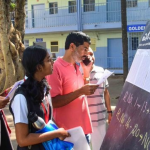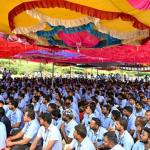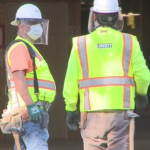
planning to go to the us for higher studies 5 key things to realize beforehand
For decades, the United States of America has been a dream destination for students across the globe who aim to achieve quality education and seek various opportunities. If you are one of them, then making your way to America and studying at its prestigious institutions is going to require some planning and understanding. Here are five critical aspects to consider before you pack your bags for higher education in America:
1. The Visa Application Process and Requirements
Getting a student visa is an important part of achieving your goal. Most foreign-born students will need either an F-1 visa for academic studies or an M-1 visa for vocational programs. Key highlights include:
•You have to be accepted by a SEVP-approved school first.
•Apply early, as the times taken for the processing of visas vary.
• Be ready for your interview: Keep all documents required for the interview ready and be prepared to talk about your study plans and your ties.
• Be aware of the limitations associated with the employment rules under which a student visa is quite strict.
2. Cost of Education and Living
Higher education in the US is not cheap. Following are some monetary considerations that will impact your pocket:
* Differential tuition fees across public and private, and even across states
* Other expenses such as health insurance, books, technology fees
* A high cost of living, especially in large cities
* Look out for scholarship opportunities available from an institution and other external sources.
* Be aware of the limitations to working while studying and plan your budget accordingly.
Keep Reading
3. Cultural Adjustment
The US is one of the most culturally diverse countries in the world, but moving to a new setting can be difficult nevertheless:
* Be aware that you might suffer from culture shock and homesickness.
* Learn about American customs and social behaviors.
* Make use of opportunities to mix with different groups of people.
* Avail yourself of international student support services on your campus.
4. Academic System Differences
The US education system is going to be far different from what you are used to:
- Most US colleges and universities have requiring participation classes, often require critical thinking, and are heavily based around independent research.
- Grading systems and academic integrity policies within the college/university might differ from those in your home country.
- Be aware of the credit system and precisely, for instance, the requirements for degree completion of your program.
- Use Resources: Writing Centers, Tutoring Services, Office Hours.
5. Post-Graduation Opportunities and Challenges
Start to crystallize in your own mind what your long-term goals are and how they will match up to studying in the US:
- Investigate optional practical training opportunities which would allow you to be employed in your major for some period following graduation.
- Research the difficulties to be anticipated in acquiring H1-B long-term working visas should you wish to stay in the US.
- If you intend to return to your native country, find out the perception of the home country job market towards a US degree.
- Network regularly during your studies to support yourself for future opportunities.
Pursuing higher education in the United States can be a life-changing experience, offering world-class academic programs, diverse cultural experiences, and potential career opportunities. By thoroughly researching and preparing for these key aspects, you’ll be better equipped to navigate the challenges and make the most of your American educational journey.









